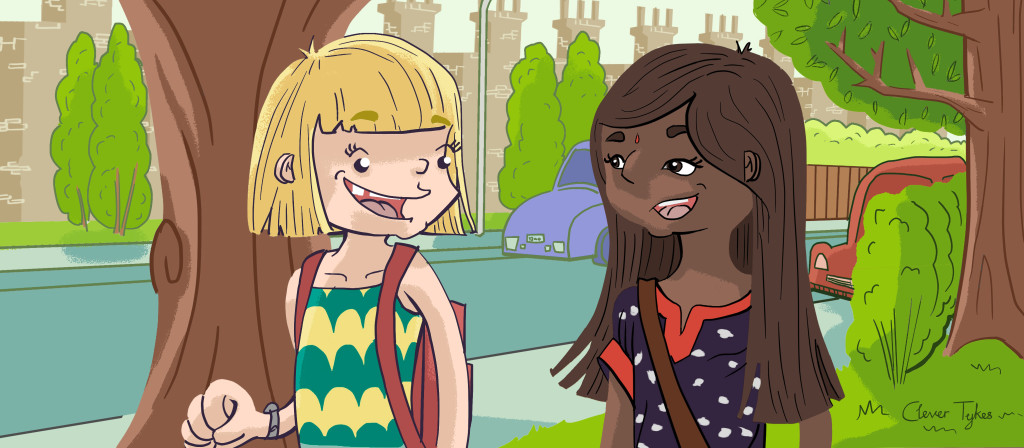14 Jul PSHE Opportunities
PSHE or “citizenship” is an incredibly important school subject. However, since it doesn’t lend itself too well to examinations and grades, it often takes a back-seat to other subjects. The provisions for PSHE vary from school to school.
PSHE in Schools
Unfortunately, PSHE is sometimes regarded as a burden on schools and teachers since the lack of academic standards mean it’s difficult to inspire the delivery of meaningful material. Here at Clever Tykes, we took the time to trawl through over 15 years worth of OFSTED reports and interview teachers about PSHE, where its weaknesses lie and the opportunities it can provide, with a focus on the subject at a primary level.
So-called “soft skills”
It’s actually the so-called “soft skills” that are most important in today’s society. Of course, academic attainment is important and, for some careers, it is paramount. However, in many careers, academic attainment is predominantly used as part of a screening process and it is other characteristics that determine someone’s professional success. These skills and characteristics include being ‘enterprising’ and they transcend the worlds of employment, self-employment and building a business empire.
They include:
- Public speaking and presenting
- The ability to empathise
- Communicating face-to-face and over the phone
- Reasoning, persuasion and sales skills
- Independence and resourcefulness
- Hard work and endeavour
- Positivity, especially in the face of adversity
These are all skills that should be developed during a child’s formative years but are often overlooked whilst focusing so heavily on academic subjects. This is no fault of schools or teachers, who must achieve the standards set by local and national governing bodies, something I discussed in a post about the tradeoff between studying for exams and inspiring creativity.
Clever Tykes has developed resources for PSHE that tie-in enterprise education and many other life skills. Check them out here.
Challenges PSHE faces
Since PSHE covers those topics that aren’t necessarily deemed academic or even objective, less focus is placed on the subject. This has several knock-on effects. These challenges have been drawn from Clever Tykes’ research.
Resources are not as abundant for PHSE as they are in other subjects. This leaves teachers less material to help them deliver meaningful lessons. Children often report that they complete the same tasks each year.
Without resources and a structured PSHE curriculum, work is often not marked or judged. Studies have shown that if children are not marked on their work, their motivation to work hard is significantly reduced.
Many of the teachers we interviewed also agreed with OFSTED reports suggesting teachers aren’t sufficiently trained to deliver PSHE lessons and felt underprepared to address certain personal elements of the subject.
These factors contribute to a vicious circle. If PSHE is generally ineffective, its critics increasingly question its inclusion in the school day, fewer high-quality resources are produced so less emphasis can be placed on it by teachers and this is only passed on to children.
Despite these challenges, there is good reason for schools to spend time overcoming them. There is a positive relationship between schools that have a strong PSHE performance and achieving “outstanding” in OFSTED reports. It is suggested that schools that focus on pupils’ ethos, work ethic and school culture generate multiple benefits that carry over to all areas of the curriculum and pupil development.
The opportunities PSHE provides
Many of the weaknesses and challenges facing PSHE also provide its opportunities. The lack of structure and marking criteria gives teachers the freedom to deliver valuable lessons in a way they feel best benefits their children. The freedom enables the best teachers to work on those important skills sometimes unaddressed in the academic curriculum. However, the lack of resources and guidance still represents a barrier to delivering valuable material.
The key elements required to elevate the importance and effect of PSHE are thus:
- Structured lessons and lesson blocks – just as you have for ‘harder’ academic subject. PSHE should have certain focused and objectives each half term.
- Clear student progression including scope to push better performers – don’t let PSHE become linear. Like other subjects, students should be building their skills and knowledge and facing increasingly challenging tasks.
- A form of marking criteria, even if subjective – without some way of marking children’s work or activity, teachers and students pay less attention. We need to be able to track success between students and year groups if we’re able to improve.
- Interesting and engaging projects and resources – without the infrastructure to deliver great lessons, it is difficult to inspire children and parents to get involved and pay attention to the subject.
- The ability to integrate elements of PSHE into the wider curriculum and vice-versa.
This brings us nicely on to the most effective ways PSHE is actually delivered in schools.
PSHE delivery
Broadly speaking, there are two ways that PSHE is addressed by schools; either in discreet PSHE lessons or integrated into other elements of the curriculum. There are pros and cons to both approaches and some schools have adopted somewhat of a hybrid; combining discreet PSHE teaching time and some cross-curricular integration, as suggested in point five, above.
Having discreet PSHE lessons means the entire class has time to focus, together, on a specific topic. This gives PSHE the status of any other lesson and enables a structured block of lessons to be delivered over the course of a half term, for example. Discreet PSHE lessons are absolutely necessary for certain topics covered in the subjects such as sex education and stranger safety, for example.
However, some topics, such as equal opportunities, appreciating e-safety and improving self-confidence can be intertwined with other lessons. Technically, PSHE now covers ‘economic’ education or ‘financial literacy’. This is a perfect example of where PSHE should be addressed in other lessons such as maths so dedicating an entire lesson to something that could be achieved elsewhere is arguably a waste of resources.
Another potential weakness of discreet PSHE lessons is that if the topic being studied is less engaging or has poor resources, students can see it as a ‘doss’ lesson; a time they can relax and work less hard. This is especially true if students know their work will not be marked or assessed in any way. Find out more information on PSHE best practices here.
Cross-curricular PSHE delivery
Several elements of traditional PSHE can be delivered in more academic subjects. For example, healthy eating can be integrated with maths (calculating macronutrient content), science, physical education and even geography – where the world’s healthiest food are grown, for example. E-safety, an increasingly important subject in today’s society, can easily be covered in IT lessons. One of the major benefits to this approach is giving academic subjects some real-life context and application.
This is where Clever Tykes believes enterprise holds the key to effective delivery of PSHE in Key Stage 2. Enterprise can certainly be a topic that integrates elements of a traditional PSHE curriculum with personal development. In fact, the Clever Tykes resources were designed precisely with this in mind, which is why numerous facets of PSHE are included.
Enterprise also lends itself incredibly well for cross-curricular study. Good primary enterprise resources should provide several opportunities for inclusion in other subjects. Here’s a list of ways enterprise education can be included in a traditional curriculum and we’d love to hear from teachers who have discovered other great ways of teaching enterprise and PSHE in unique and effective ways!





